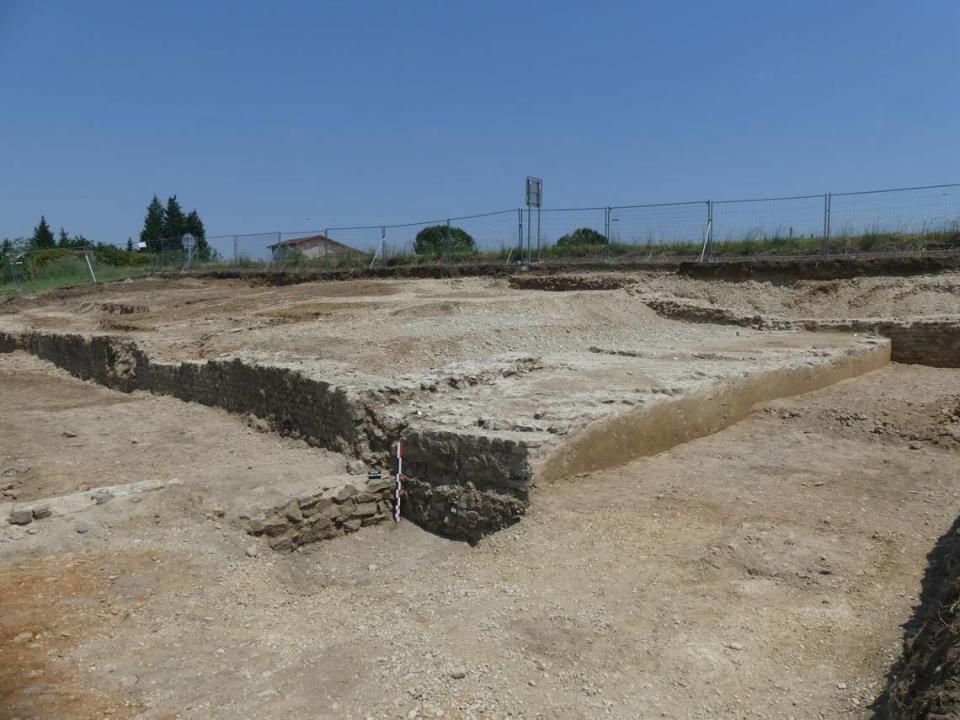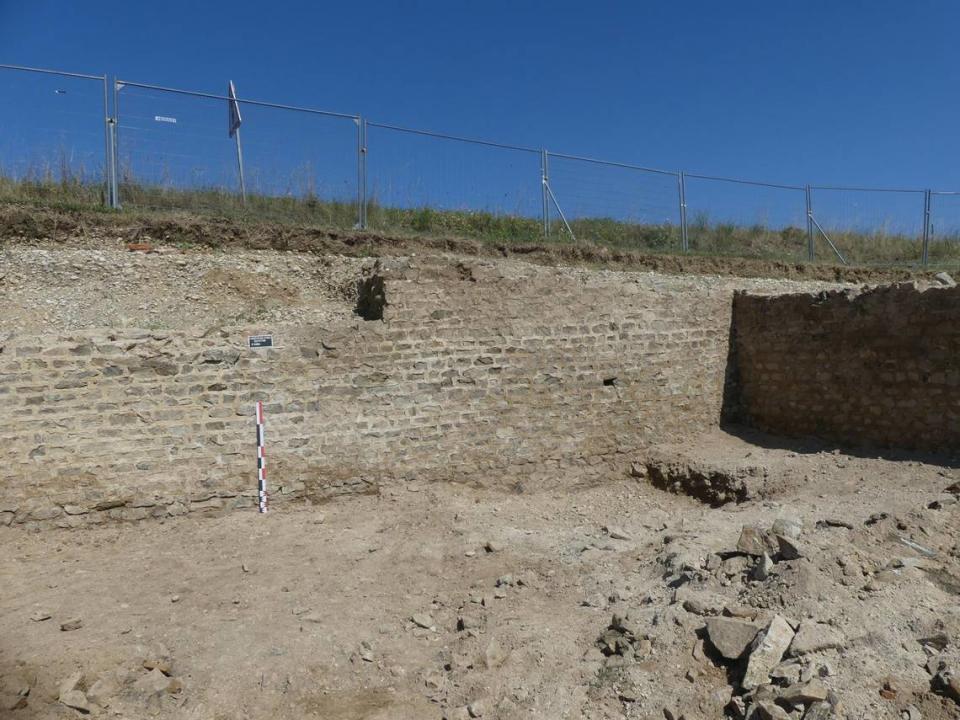1,900-year-old winery — that made drinks for ancient Romans — found in France. See it
On the bank of a picturesque river in southern France sat a collection of ancient ruins. A buried cellar and empty pools are all that remain of a Roman-era winery.
Archaeologists found the ruined winery in Laveyron during excavations for a factory’s parking lot, the French National Institute for Preventive Archaeological Research (Inrap) said in a Nov. 30 news release.
The large-scale winemaking operation was built in the first century A.D. and probably produced drinks for ancient Romans, archaeologists said.
The Roman empire conquered modern-day France, then known as Gaul, in 53 B.C., according to Britannica. The region remained under primarily Roman rule until the early sixth century.
The 1,900-year-old winery had a central platform where the grapes were pressed, the release said. A photo shows this raised structure.

On either side of the platform, archaeologists found basins where the grape juice was collected. A photo shows one of these empty, rectangular basins.

The basins were in turn linked to two larger rooms that archaeologists identified as cellars, the researchers said. A photo shows the cellar wall. A large section of the wall still stands. The construction appears to be made of neatly arranged, rectangular bricks.

Excavations also uncovered a three-room building that was likely used for the wine production, archaeologists said. The imprints of several large jars, typically used for storing wine or olive oil, were also uncovered. A photo shows these darker-brown, medium-sized imprints.

Archaeologists did not specify when or why the winery may have been abandoned.
The excavation also found traces of several older buildings, dating to the first century B.C., the institute said. The function of these remains unknown, but a nearby trash heap from the same period revealed fragments of pottery, including the large jars used for wine and olive oil.
Laveyron is along the Rhône river and about 300 miles southeast of Paris.
Google Translate was used to translate the news release and article from the French National Institute for Preventive Archaeological Research (Inrap).
Collapsed wall concealed ‘spectacular’ 900-year-old mummies in Peru — until now
Hot muddy waters hid cult’s mysterious deity for 1,500 years in Italy. See the photos
Silver treasures hid beside main road in Poland for 700 years — until now. See them

